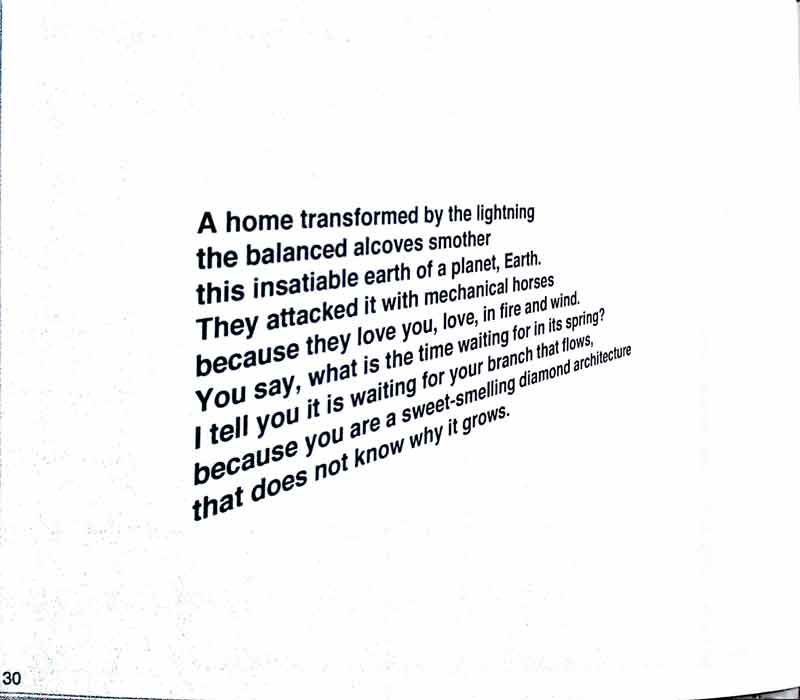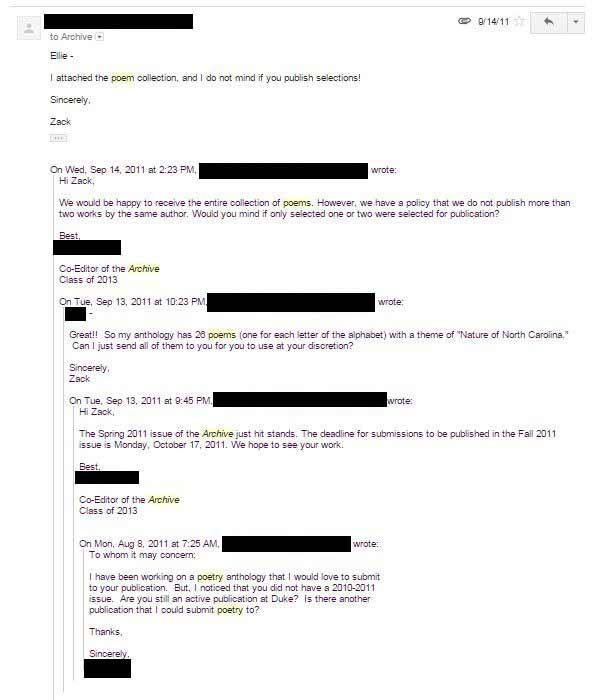
My poetry generator passed the Turing Test
A simple poetry generator I wrote was good enough to get published in a literary journal.
The real Turing Test of this AI was to get it accepted to a literary journal, which was accomplished - this poetry was successfully accepted into a literary journal at a prestigious university. The story is below and the code is at the bottom for those who want to make their own!
What do you think of the following poem?
Orange Light
I conduct myself in a windy manner because I am
drunk and enchanted in this field.
The oxygen around my head is rabid
and filled with orange light
like a equinoctial tiger to its flesh.
My heart moves violently
on this neon ship.I promise as I were a rotting ghost
forced half-open in love
in front of the gray agony of the darkness
and decaying droplets of acidulous gold.I reply, only fear and geology are the
leaves of belligerence.I’d do it for the geology
and I’d do it for the fear of your response.
If you answered anything other than “That’s not a poem!” to that question, then you probably believe more or less that it is a poem, and by some standards then the artificial intelligence that generated this poem once again passed the Turing Test.
Turing test, what’s that?
The Turing test is a test of the ability of a machine to exhibit intelligence that is indistinguishable from a human. It can exist in many varieties - chat bots, intelligence bots, artist bots. This poetry generator is a very simple type of artificial intelligence, yet it is indistinguishable from any sort of poetry you may encounter from other humans.
There have been generators among the years that are capable of passing Turing tests. In 2005, students wrote a generator for academic CS papers. One of the generated papers was accepted to a conference before conference organizers realized it was a joke. There is also a great post-modernism generator developed by Andrew Bulhak and Josh Larios, which demonstrates the ability to generate cohesive but incoherent post-modernist literature academic papers.
How does the poetry generator work?
This Poetry generator uses a Context-free grammar using the notation of Backus-Naur Form. Context-free grammar systems are a generalized system of formal grammar defined by production rules which allow sentences to be recursively built from smaller phrases. The formalism was developed by Noam Chomskey in the 1950’s.
Essentially this poetry generator works by having the poem dissected into smaller components: stanzas, lines, phrases, then verbs, adjectives, and nouns. When a call to create a poem is made, then it randomly selects components of the poem and recursively generates each of those. For example, a generated title may look something like this:
*title*=A *fruit*
*fruit*=grape|apple|orange|banana|cherry|mango|kiwi|tomato|lemon|fruit
In that case the title is generated as “A ” and then it looks up and selects one of the possible “” words to finish it before it returns “A grape” or something similar.
Does this computer-generated poetry pass the Turing test?
I began by submitting my poetry to your-poetry.com which was a popular poetry website of the time (in 2010). I never conferred that these poems were computer-generated. I published under the name Antikythera. The responses I received were, for the most part, quite flattering. Here are some of the responses I got:
“Many layers to this piece, it demands a second and even third reading. I like the challenge you’ve set out here, well done.”
“I like this! Its like it is straight from the pages of a mystical story,filled with delightful colours and wonderful landscapes.”
“I like you style of just giving the reader a small taste of what you are expressing. It opens up the thought process and gives us something to ponder without fully knowing the subject. Nice!”
“What a wonderful piece of writing. you paint a vivid picture and I love the picture you have painted here. well done.”
“Its like you just sang a beautiful song…”
“you certainly know how to make words jump off the page, well written, well done.”
The negative criticism I received typically found that my poems were incomprehensible or nonsensical, such as the following:
“Sorry to say you have a very strange way of expressing yourself and this poem I have really not understood.”
The overwhelming positive responses compelled me to use a more stringent test of authenticity - seeing whether this computer-generated poetry could get published in a poetry or literary journal.
Final test: Getting computer-generated poetry published
As many poets often do, I tried submitting my poetry to several places. When I submitted these poems to publications I never specified that they were computer generated. I submitted to the Memoir Journal (now defunct) and First Writer Poetry contest but both rejected the poetry without comment. I then turned to local sources and submitted to The Archive, one of the oldest continuously published literary magazines in the United States and the oldest student publication at Duke University.
The Archive agreed to publish one of my poems! The email chain is below. I actually submitted 26 poems (one for each letter of the alphabet) and selected a good one to publish.

The Archive published a great poem and selected an image of a bulldozer to be accompanied with it. The bulldozer is interesting, I think that they implied that the poem’s central theme is something about the destruction of the environment? The poem and art is shown below:


In conclusion it seems very possible to create an artificial intelligence to do specialized tasks, like writing poetry, that can sufficiently pass as a human being. Perhaps in the future we will need to question the source of creative materials to determine whether they are indeed human or machine made.
Interested in making your own poem?
The source code for my poetry generator (now implemented in Python instead of Java) is open-source and available. Click the button below to generate your own poem, or check out the source code on Github.
Go to poetrygenerator.ninja to try generating your own poem!